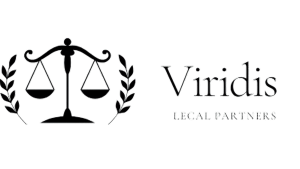License Contracts in Turkey: Legal Framework and Key Insights
License contracts today, play a key role in nearly every aspect of commercial life. In Turkey, these contracts are governed by comprehensive legal frameworks, including the Industrial Property Law No. 6769 and the Law on Intellectual and Artistic Works No. 5846. Apprehending the legal framework put on the license contracts by these laws, the types of licenses available, the obligations of both licensors and licensees and the key points of the license agreements are essential for anyone looking to license intellectual property in Turkey.
What is A License Contract?
A licence agreement can be defined as a contract in which one party transfers the use of an intellectual or industrial property right and the other party agrees to pay a fee in return.
In Turkish legislation, the licence agreement is regulated in the Industrial Property Law No. 6769, firstly in a similar manner within the book related to each right and then under the title of common provisions, as the rights and claims of the licensee. On the other hand, Article 48 and the following articles of Law No. 5846 on Intellectual and Artistic Works regulate that only the use of the financial rights arising from the ownership of the work can be transferred and this contract is called Warrant Agreement in the law. However, this warrant agreement has also been referred to as a licence agreement in practice. For instance, a copyright warrant agreement for computer software appears as a copyright licence agreement.
In addition, as defined in the Block Exemption Communiqué on Technology Transfer Agreements numbered 2008/2; Technology transfer agreements, which refer to agreements where patents, utility models, designs, integrated circuit topography and breeder rights, applications related to these, the right on software and know-how are licensed separately or in combination, also fall within the scope of the license agreement.
Which of the Intellectual or Industrial Property Rights Can Be Licensed in Turkey?
In practice, licence agreements are often referred to by the name of the right subject to the licence. For example; trademark licence agreement, patent licence agreement, design licence agreement, work licence agreement,… On the other hand, as a rule, each intellectual or industrial right or know-how, production and business secrets may also be subject to licence agreements.
The issue of which rights cannot be a subject of a license agreement also must be stated here. Geographical indication (protected sign of origin and protected geographic indication) and traditional product names cannot be subject to a license agreement due to their nature. This is displayed in Article 148/1 of Law No. 6769: “Geographical indication and traditional product name rights cannot be subject to license, transfer, transfer, seizure and similar legal transactions and cannot be shown as collateral.” It is also expressed as: Again, in Article 148/7 of the same Law: “The transfer of the warranty trademark or joint brand or the granting of a license for the joint brand is valid in case of registration in the registry.”, the warranty brand cannot be subject to a license agreement.
Types of License Contracts
Exclusive and Non-Exclusive Licence
Licence agreements are basically of two types: exclusive licence agreements and non-exclusive licence agreements (simple licence agreements, ordinary licence agreements). In non-exclusive licence agreements, the licensor may use the right subject to the licence itself or grant other licences to third parties. In exclusive licence agreements, the licensor may not grant licences to others and may not use the right subject to the license her/himself unless s/he expressly reserves her/his right.
These aspects are expressed in Article 24 of Law No. 6769 in terms of trademark rights, Article 75 in terms of design rights and Article 125 in terms of patent rights. Pursuant to Article 145 of the aforementioned law, the provisions regarding the licence of the patent shall also apply to the utility model.
Compulsory and Contractual Licence under Patent Rights
In terms of patents, a licence may arise as a contractual licence or a compulsory licence. A patent right may be subject to a compulsory licence in cases where the invention subject to the patent is not used; there is a dependency between the subjects of the patent; the public interest requires it; the export of pharmaceutical products subject to the patent is in question due to public health problems in other countries; the breeder cannot develop a new plant variety without infringing a previous patent; the patentee engages in activities that prevent, distort or restrict competition while using the patent. As a rule, a compulsory licence is established as a non-exclusive licence. The decision to grant a compulsory licence for reasons of public interest may be made by the Presidency of the Republic, and in this case, it may also be decided that the licence will be exclusive, and the compulsory licence is established by requesting the Competition Authority if the patentee engages in activities that prevent, distort or restrict competition while using the patent, and in other cases by submitting a request to the Court.
Legal Framework for License Contract
Parties of The License Contract
The parties to the license agreement are the licensor and the licensee. The licensor often appears as the rights holder. However, in cases where the licensee has the right to grant sublicenses, it is also possible for the licensee to acquire the title of the licensor. However, as stated above, it is possible for the licensee to transfer the license right or grant a sublicense if this is explicitly stated in the contract.
The licensee may be one or more real persons or a legal entity (personal license or business license).
Elements, Rights and Obligations of the Parties to The License Contract
The license agreement appears as an atypical contract that imposes mutual obligations. While the licensor transfers the use of the right, the licensee agrees to pay a fee to the licensor in return. In this case, the elements of the license agreement consist of the right transferred and the cost.
The primary obligation of the licensor is to transfer the right to use. Ensuring the use of the right is also within the scope of this obligation. It should be stated here that it is attainable to transfer the right of use for all or part of the goods and services subject to the right. In addition, if the trademark right is licensed, the trademark owner is under the obligation to take measures to guarantee the quality of the goods to be produced or the services to be offered by the licensee.
The licensee’s main obligation is to pay the agreed price. However, the licensee cannot expand or transfer the right granted by the license without permission. Such use by the licensee may not only constitute a breach of the license contract but may also be considered as an infringement of the right subject to the license.
Duration of The License Contract
The term of the licence agreement may be freely agreed by the parties. In addition, the licence agreement shall also terminate upon the end of the licensor’s monopoly over the right subject to the agreement. It should also be noted here that if trademark, patent and design rights are the subject of a licence, in order for the licence to be registered in the Registry, the licence agreement must include a period of time according to the Regulation on the Implementation of the Industrial Property Law.
Termination of The License Contract
If a period of time is specified in the licence agreement, the licence agreement shall terminate automatically upon expiry of the period of time. Moreover, the licence agreement will also terminate if the protection period of the right subject to the licence expires, is not renewed, the right is waived, or the application is withdrawn. In various articles of the Law No. 6769, however, it is stated that if the right of the licensee is registered in the registry, renunciation can only be made with the permission of the licensee. In addition to all these, it is also possible to terminate the licence agreement if the licensee does not comply with the terms of the agreement or if justified reasons for termination arise.
Form and Registration of the License Agreement Under The Industrial Property Law No. 6769
In the case that a right regulated under the Law on Intellectual and Artistic Works, such as copyright, is subject to a licence agreement, the agreement must be concluded in writing pursuant to Article 52 of the said Law. Here, the aforementioned form is not only a condition of proof but also a condition of validity. In other words, if a licence agreement regarding the aforementioned rights is not made in writing, this agreement will be void with absolute nullity. Again, the ordinary written form is sufficient here, and the agreement does not need to be made officially at the notary public. However, we would like to state that its execution in a notary will facilitate the proof.
In the case that rights such as trademarks, patents and designs regulated under the Industrial Property Law are subject to a licence agreement, written form is a condition of validity pursuant to Article 148/4 of the aforementioned Law.
In terms of copyright, an optional registration system has been adopted in Turkish Law and licenses granted for works are not recorded in the registry. Registering the license agreement made within the scope of industrial property law with the Turkish Patent and Trademark Office (“Türk Patent”) upon request is possible. Registration of the license agreement provides many rights to the licensee such as: eliminating the goodwill of third parties; preventing the licensor from waiving or partially renewing its rights without the consent of the licensee, or giving consent for trademark applications. For the registration of the license agreement, the following documents should be submitted to the Office; the application form and the document proving that the fee has been paid, along with the application or registration number of the right subject to the agreement and, if any, the license agreement specifying the license fee and license period, and if the license agreement is in a foreign language, its Turkish translation approved by a sworn translator.
Negotiating and Drafting Licensing Agreements
First of all, it is important to clearly understand the rights subject to the license and the way of using the rights within the scope of the contract in order to prevent a dispute from arising. Considering that any intellectual industrial property right, from computer software to a trademark, from a patent to know-how, can be the subject of a license agreement, the importance of writing the contract subject in a way that leaves no room for hesitation becomes evident.
Again, it would be beneficial to clearly regulate the license fee in the contract. A fixed amount can be determined for the license fee or a method of calculating the fee proportional to the income as a royalty can be decided. If the latter is preferred, the necessary arrangements for accurate determination of income should also be included in the contract. In light of all that has been said, it is also important to arrange within the contract situations such as the licensor’s ability to examine the licensee’s income or request a report or document regarding this, or the licensee’s ability to carry out the necessary inspections in the workplace and operation.
If the license is exclusive and the licensor will use the right subject to the license himself, this must be clearly stated in the contract. If it is decided otherwise, it will be to the benefit of the licensee if non-competition regulations are included in the contract.
It would be appropriate to focus on the clauses within the contract that regulate the duration of the contract, expiration of the term, automatic renewal or termination of the contract, and termination under ordinary or extraordinary circumstances, and write them in a way that will both meet the needs and minimize disputes.
How We Can Assist You
As Viridis Legal Partners, we are here to assist you with our extensive experience in handling license contracts, to ensure that your intellectual and industrial property rights are fully protected under Turkish law. Whether you need assistance with drafting, negotiating, or registering license agreements, our expert team of English-speaking IP lawyers in İstanbul is well-versed in the sophistications of Turkish regulations, including the Industrial Property Law No. 6769 and the Law on Intellectual and Artistic Works.
We provide personalised legal solutions tailored to meet the unique needs of our international clients. From managing technology transfer agreements and compulsory licenses to handling disputes and ensuring compliance with the latest legal standards, we are committed to making the legal process as smooth and efficient as possible for you. Our dedicated team of intellectual property attorneys in Turkey is equipped to represent you in all necessary legal forums, ensuring your interests are safeguarded at every step.
For expert legal assistance, please contact us today.
- What are the different types of IP licenses available in Turkey?
In Turkey, various types of IP licenses are available, including trademark licenses, patent licenses, design licenses, copyright licenses, utility model licenses, and know-how licenses. Each type of license grants specific rights related to the respective intellectual property.
- How do I negotiate an IP licensing agreement in Turkey?
Negotiating an IP licensing agreement in Turkey involves discussing terms such as the scope of the license, duration, territorial limitations, royalty payments, exclusivity, sublicensing rights, termination clauses, and dispute resolution mechanisms. It’s essential to ensure clarity and mutual understanding of all terms to reach a satisfactory agreement.
- What legal protections are there for licensors in Turkey?
Licensors in Turkey are protected by various legal provisions, including those outlined in the Industrial Property Law No. 6769 and the Law on Intellectual and Artistic Works No. 5846. These laws establish the rights and obligations of licensors, including the right to enforce the terms of the license agreement and seek remedies in case of infringement.
- Can foreign entities license IP in Turkey?
Yes, foreign entities can license intellectual property in Turkey. Turkish law does not impose restrictions on foreign entities regarding IP licensing agreements. However, it’s essential for foreign entities to ensure compliance with Turkish legal requirements and consider any tax implications or regulatory issues that may arise.
- What are the consequences of IP licensing infringement in Turkey?
Infringement of IP licensing agreements in Turkey can lead to various consequences, including legal action, termination of the license agreement, payment of damages or royalties owed, and injunctions to prevent further infringement. The specific consequences depend on the terms outlined in the license agreement and the severity of the infringement.
Hair Transplant Malpractice in Turkey
If your hair transplant in Turkey went wrong, you may be entitled to compensation. Learn your rights, legal steps and how to file a malpractice claim with expert support.
Divorce in Turkey for Foreigners: Legal Grounds, Process & Custody
Looking to file for divorce in Turkey? Learn about the legal grounds, court procedures, alimony, custody rules, and how foreigners can divorce under Turkish law.
Adoption in Turkey: Legal Process
Comprehensive guide to the process, conditions and legal details of adoption in Turkey. Legal support for single adoption, intercountry adoption, social investigation, and adoption proceedings.







Turkey’s Business Setup: Key Steps with Commercial Law Attorney
Setting up a business in a foreign land can be daunting, especially when you’re unfamiliar with local laws and regulations. Turkey is a country full of promise for investors and entrepreneurs, with a robust economy and a welcoming business environment. This guide provides you with comprehensive information on company establishment in Turkey.
Who Are Viridis Legal Partners?
We are a law firm based in Istanbul, specializing in various areas of law, including commercial law and related areas. As Viridis Legal Partners, your corporate lawyers in Turkey, we offer personalized and effective solutions to your legal matters in Turkey.
An Introduction To Setting Up A Company In Turkey
Establishing a company in Turkey involves several legal procedures, including choosing the right business structure, registering your company with the relevant government authorities, and ensuring you have the right licenses and permits. The process might seem complicated, but with the right legal support, you can successfully establish a company in Turkey.
Understanding Turkey’s Legal Framework For Businesses
When planning to open a business in Turkey, understanding the local legal framework is crucial. This includes knowing the laws regulating businesses, commercial activities, and foreign investments. It’s also essential to understand the tax obligations and labour laws, especially if you plan to hire employees.
Choosing The Right Legal Structure For Your Business
One of the first steps to starting a business in Turkey is choosing the right legal structure.
In the Turkish Commercial Code, companies are divided into two main groups: capital companies and sole proprietorship companies. The most common types are Sole Proprietorship, Limited Liability Company (LLC), and Joint-Stock Company (JSC). The choice of the legal structure can significantly impact the company’s operation, management, and taxation, so it’s vital to make an informed decision.
Sole Proprietorship
A Sole Proprietorship is the simplest form of business structure. It’s suitable for individuals who wish to operate a small business. In a Sole Proprietorship, the business owner has unlimited liability, which means they are personally liable for the business’s debts.
Limited Liability Company (LLC)
An LLC is a popular choice among foreign investors. It requires a minimum capital of 10,000 Turkish Lira and can be established by a minimum of one and a maximum of fifty partners. The liability of the partners is limited to their contribution to the capital.
Joint-Stock Company (JSC)
A JSC is suitable for larger businesses with higher capital requirements. It requires a minimum capital of 50,000 Turkish Lira. The liability of shareholders is limited to their shares in the capital.
Branch & Representation Office of Foreign Companies
Foreign companies can also establish a branch or a representation office in Turkey. While a branch office can engage in commercial activities, a representation office cannot engage in commercial activities and can only conduct market research and promotional activities.
The Company’s Capital Funds
The required capital for setting up a company in Turkey depends on the chosen legal structure. For an LLC, a minimum capital of 10,000 Turkish Lira is required. On the other hand, a JSC requires a minimum capital of 50,000 Turkish Lira.
Required Documents For Registering A Company In Turkey
Documents required for company registration in Turkey include documents such as articles of association, capital payment certificates, and identity documents of shareholders and managers. All documents must be notarized and submitted to the Trade Registry Office.
The Procedures For Starting A Company In Turkey
1. Obtaining The Necessary Licenses and Permits
Before starting your business operations in Turkey, you must obtain the necessary licenses and permits from the relevant local authorities. The type of licenses and permits required depends on the nature of your business.
2. Opening a Bank Account
To register your company in Turkey, you need to open a bank account and deposit the required capital. You must provide a bank receipt proving the capital has been deposited when you apply for company registration.
3. Registering With Social Security and Tax Authorities
Once your company is registered, you must register with the Social Security Institution and the local tax office. You will receive a tax number that should be used in all tax-related transactions.
What Are the Labour Laws in Turkey?
If you plan to hire employees in Turkey, you must comply with the local labour laws. This includes minimum wage regulations, working hours, overtime pay, and social security contributions. It’s advisable to consult with a lawyer to ensure compliance with labour laws.
Shareholders In A Company In Turkey
Who are The Shareholders of a Company in Turkey?
Shareholders are the owners of a company. They can be individuals or legal entities, and they contribute to the company’s capital. Shareholders play a crucial role in making significant decisions about the company.
Viridis Legal Partners’ Company Establishment Services In Turkey
At Viridis Legal Partners, we guide you through every step of the company registration process in Turkey. From choosing the right legal structure to submitting the necessary documents and representing you before government authorities, we offer a comprehensive service to get your company up and running.
Conclusion: Establishing A Successful Company In Turkey
Setting up a company in Turkey involves several important steps, but with expert guidance and meticulous planning, you can establish a successful business in this vibrant and fast-growing market. Whether you’re planning to set up an LLC, a JSC, or a branch of a foreign company, Viridis Legal Partners is here to help you navigate the process smoothly and efficiently.
Frequently Asked Questions (FAQS)
What is The Price of Establishing a Company in Turkey?
The cost of setting up a company in Turkey varies depending on the chosen legal structure and other factors. For precise information, please contact us.
How Long Does it Take to Establish a Company in Turkey?
The duration of the company establishment process in Turkey can vary depending on the type of company and other factors. Generally, it can take from one week to a few months.
Where Can You Seek Information on Establishing a Company in Turkey?
You can get reliable information on establishing a company in Turkey from legal experts like us, Viridis Legal Partners. We specialise in Turkish business law and provide up-to-date and accurate advice.
Can a Foreign National Establish a Business in Turkey?
Yes, foreign nationals can establish a business in Turkey. There are no restrictions on foreign ownership of companies in Turkey.
What Are The Differences Between LLC and JSC in Turkey?
The main differences between an LLC and a JSC in Turkey are the minimum capital requirements and the liability of the shareholders. An LLC has lower capital requirements but the shareholders’ liability is limited to their contribution to the capital.
Articles on Law
Hair Transplant Malpractice in Turkey
If your hair transplant in Turkey went wrong, you may be entitled to compensation. Learn your rights, legal steps and how to file a malpractice claim with expert support.
Read More
Divorce in Turkey for Foreigners: Legal Grounds, Process & Custody
Looking to file for divorce in Turkey? Learn about the legal grounds, court procedures, alimony, custody rules, and how foreigners can divorce under Turkish law.
Read More
Adoption in Turkey: Legal Process
Comprehensive guide to the process, conditions and legal details of adoption in Turkey. Legal support for single adoption, intercountry adoption, social investigation, and adoption proceedings.
Read More
Turkish Citizenship By Real Estate Investment
How to secure Turkish citizenship via real estate purchase. A detailed legal guide for foreigners provided by Viridis Legal Partners.
Read More
Refusal of Residence Permit in Turkey
Refusal of residence permit in Turkey? Viridis Legal Partners assists with re-applications, appeals, and legal action against rejections. Contact us for expert support.
Read More